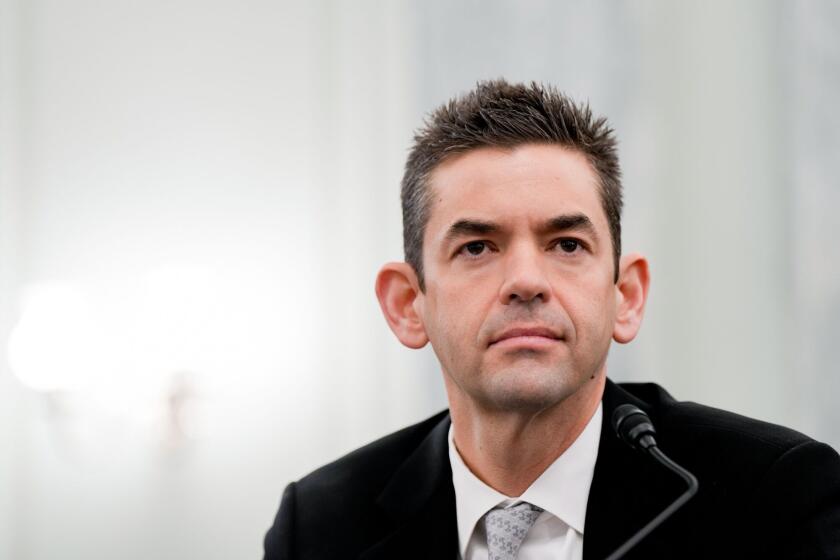UCI Med School Signs Renowned Brain Surgeon
- Share via
IRVINE — In a coup for UC Irvine, world-renowned brain surgeon and cancer researcher Dr. Keith L. Black will become chairman of the medical school’s struggling neurosurgery department, sources said Wednesday.
Black, who is director of Cedars-Sinai Medical Center’s neurological institute in Los Angeles, will maintain that position while he takes on the UCI duties, a spokeswoman for the institute said.
Black, 40, was named one of Time magazine’s “Heroes of Medicine” last year and was profiled in a 1996 PBS series called “The New Explorers.”
At UCLA Medical Center, where he was on staff until his move to Cedars-Sinai last May, Black performed more than 200 brain tumor surgeries a year. He has published more than 100 scientific articles and has been credited with saving or extending the lives of many brain cancer patients who could not be treated by other doctors.
Black’s move is a boost for UCI, where the neurosurgery program was put on probation last year by the national agency that awards accreditation to medical schools.
Dr. Thomas C. Cesario, dean of the medical school, said Wednesday he could not confirm Black’s appointment. However, he said he is “in active discussions” with a candidate and indicated that negotiations are nearly finished.
A UCI source and the office manager of Cedars-Sinai’s neurological institute confirmed Black was taking the UCI position.
Black was out of town and could not be reached for comment. No information was available on Black’s salary or how he would divide his time between UCI and Cedars-Sinai.
UCI medical school remains fully accredited, but several departments were cited for deficiencies in accreditation reviews in recent years. The school has corrected the majority of the areas, Cesario said.
But the neurosurgery department received the harshest marks when it was put on probation. Cesario said the medical school is working hard to recruit new staff to remedy that.
UCI Medical Center in Orange, the university’s teaching hospital, has had chronic problems attracting neurosurgical patients, making it difficult for medical students and residents to receive sufficient experience in the specialty.
The neurosurgery department has been without a leader for nearly two years, when Dr. Michael Dogali resigned, citing worsening glaucoma. But his resignation also came after seven staff members accused him and others in the office of mistreating them.
While the department has been on probation, the medical school has allowed several neurosurgical residents to find positions with medical school programs elsewhere, Cesario said. Two neurosurgery residents remain affiliated with UCI but they are taking their training at other hospitals.
Cesario said he and other officials are “retooling” the department. “Right now we have paused with the residency program to allow this retooling to occur.”
He said the department ultimately will offer “unique types of surgery” and attract new patients to “a top level of care.”
Last month, UCI hired Dr. John A. Kusske as chief of neurosurgery service. Kusske, who had been on UCI Medical Center’s staff from 1972 to 1985, will manage neurosurgery’s day-to-day operations, Cesario said.
Black, considered a world-class brain surgeon, has attracted patients from all over the globe.
Black was born in Tuskegee, Ala., not in his hometown of Auburn, where hospitals did not admit African American patients.
His father was principal of a segregated elementary school, and his mother taught there. Although he was unable to integrate the student body, Black’s father integrated the staff.
As a high school senior, Black delivered a scientific paper to a conference of cardiologists and won a Westinghouse National Science award. He headed to the University of Michigan, where he graduated with a medical degree six years later. He planned to become a cardiologist but gave in to his fascination with the brain.
He has been in the forefront of studies of a new drug that blocks the ability of tumor cells in the brain to secrete molecules that hide cancer from the immune system. Once the tumor is no longer hidden, the immune system can attack it.
Black and his wife, Dr. Carol Bennett, a urologist, live in Los Angeles and have two children.




